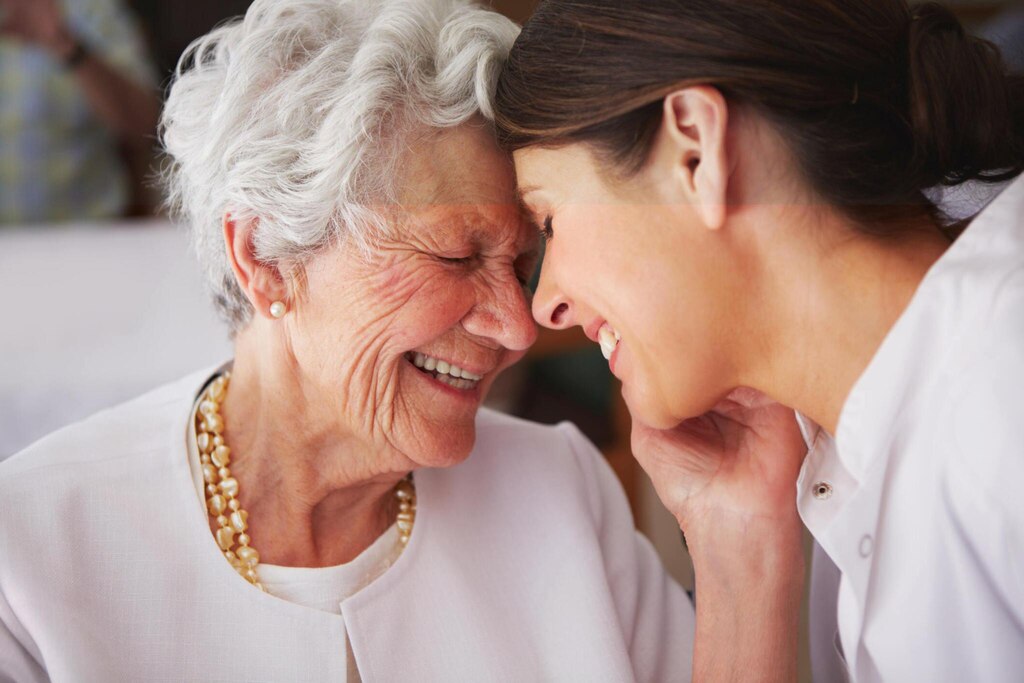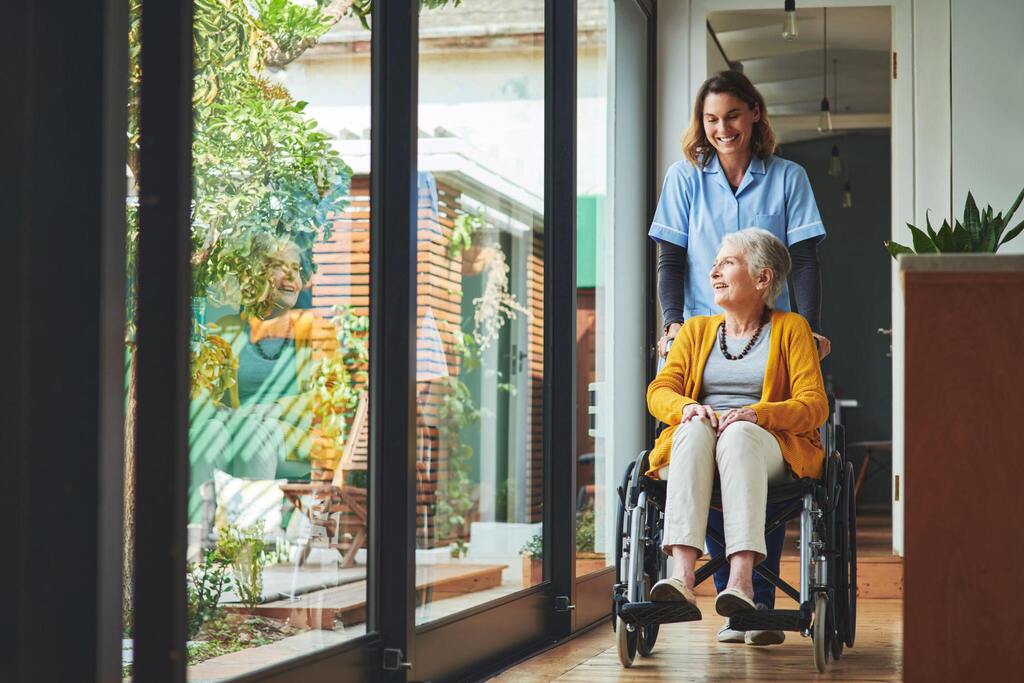As our loved ones age, the need for comprehensive and compassionate care becomes increasingly important. Many families grapple with the decision of how to best support their aging relatives, and one option that is gaining prominence is elder home care.
This article delves into the various aspects of caring for aging loved ones, exploring the benefits, challenges, and essential considerations when opting for elder home care.
Understanding the Significance of Elder Home Care
Elder home care holds paramount importance by preserving seniors’ independence within the comfort of their homes. Beyond physical assistance, it addresses emotional well-being, providing stability and security.
This approach recognizes the significance of maintaining a familiar environment, positively impacting the overall health and happiness of aging individuals.
A. Maintaining Independence
One of the primary goals of elder home care is to preserve the independence of aging individuals. By providing care within the familiar environment of their own home, seniors can retain a sense of autonomy and control over their daily lives. This contributes significantly to their overall well-being and mental health.
B. Emotional Well-being
The emotional well-being of seniors is often closely tied to their living arrangements. Elderly home care fosters a sense of comfort and security, reducing the stress and anxiety that can accompany a move to an unfamiliar setting. This emotional stability positively impacts their overall health and quality of life.
The Benefits of Elder Home Care
Embracing elder home care offers personalized care plans tailored to individual needs, fostering independence and emotional well-being.
The familiarity of one’s home environment, consistent companionship, and specialized attention from professional caregivers contribute to an enhanced quality of life for aging loved ones.

A. Personalized Care Plans
Elder home care allows for the creation of personalized care plans tailored to the specific needs of each individual. This personalized approach ensures that seniors receive the attention and assistance necessary for their unique health conditions, fostering a more effective and targeted caregiving experience.
B. Familiar Environment
Staying in a familiar environment is not only emotionally comforting but also aids in maintaining cognitive functions. The familiarity of one’s home can prevent the disorientation that sometimes occurs when seniors are placed in new and unfamiliar surroundings.
C. Companionship
Isolation and loneliness can be prevalent among the elderly, leading to various health issues.
Elderly home care provides consistent companionship, with caregivers offering not only physical assistance but also emotional support. This companionship helps combat feelings of loneliness and enhances the overall quality of life for seniors.
Addressing Challenges in Elder Home Care
While elder home care offers numerous benefits, challenges must be acknowledged and navigated. Financial considerations require careful budgeting and exploration of assistance programs.
Caregiver burnout is a potential issue, emphasizing the need for a support system. Regular assessments and communication are vital to adapt to evolving care needs, ensuring the continued effectiveness of elder home care.
A. Financial Considerations
While elder home care offers numerous benefits, it is essential to address the financial implications. In some cases, the cost of in-home care can be higher than alternative options such as assisted living facilities.
Families must carefully assess their budget and explore available financial assistance programs or insurance coverage to make informed decisions.
B. Caregiver Burnout
Family members often play a significant role in providing elder home care. However, the responsibilities and demands of caregiving can lead to burnout.
It is crucial to recognize the signs of caregiver stress and establish a support system to prevent burnout. This may involve enlisting the help of professional caregivers or seeking assistance from community resources.
C. Evolving Care Needs
As seniors age, their care needs may evolve, requiring adjustments to the caregiving plan. Regular assessments and open communication with healthcare professionals are essential to ensure that the care provided remains relevant and effective.
Choosing the Right Elder Home Care Services
Selecting appropriate home care services is crucial for effective care. Conducting a thorough assessment of the senior’s needs helps tailor personalized care plans.
Choosing professional caregivers with the right training and experience, and maintaining open communication with healthcare professionals ensures a well-rounded and responsive care approach.

A. Assessing Needs
Before embarking on elder home care, a thorough assessment of the senior’s needs is essential. This assessment should cover medical requirements, daily living activities, and potential social and emotional support. Understanding these needs helps in developing a comprehensive care plan.
B. Professional Caregivers
Selecting the right caregiver is a critical aspect of elder home care. Professional caregivers with the necessary training and experience can provide specialized care, including assistance with medications, mobility support, and medical monitoring.
Families should conduct thorough background checks and interviews to ensure the caregiver is a good fit for their loved one.
C. Communication with Healthcare Professionals
Maintaining open communication with healthcare professionals is vital in elder home care. Regular updates and consultations with doctors, nurses, and other specialists ensure that the care plan aligns with the senior’s evolving health needs. This collaborative approach enhances the overall effectiveness of the care provided.
Adapting the Home Environment
Ensuring a safe and comfortable living space for aging loved ones involves making essential modifications. Installing safety features like handrails and non-slip flooring enhances overall safety.
Considering accessibility with adaptations for mobility aids ensures seniors can navigate their home environment with ease, promoting independence.
A. Safety Modifications
Creating a safe home environment is crucial for the well-being of aging loved ones. This may involve making safety modifications such as installing handrails, non-slip flooring, and adequate lighting to prevent accidents and promote independence.
B. Accessibility Considerations
As mobility can become a challenge for seniors, it is essential to consider accessibility within the home. Adapting spaces like bathrooms and bedrooms to accommodate wheelchairs or walkers can significantly enhance the ease with which seniors navigate their living environment.
C. Technological Integration
Incorporating technology into the home can be beneficial for both safety and communication. Devices such as medical alert systems, home monitoring tools, video calling platforms, and user-friendly tablets for seniors provide additional layers of security and connectivity for seniors and their caregivers.
Navigating Legal and Ethical Considerations
Exploring the legal and ethical dimensions of elder home care involves addressing advance directives, such as living wills and durable power of attorney. Seeking legal counsel aids in creating documentation to uphold seniors’ wishes in times of incapacitation.

A. Advance Directives and Legal Documentation
Planning for the future includes addressing legal aspects of care. Seniors and their families should consider creating advance directives, such as living wills and durable power of attorney, to ensure that their wishes are respected in the event of incapacitation. Consulting with legal professionals can help navigate these important legal considerations.
B. Ethical Dilemmas
Elder home care may present ethical dilemmas, especially when family members serve as caregivers. Balancing the interests and autonomy of the senior with the caregiver’s responsibilities requires careful navigation.
Establishing clear communication and addressing potential conflicts proactively can help manage ethical challenges.
Exploring Alternatives to Elder Home Care
Considering alternatives to elder home care, assisted living facilities offer a supportive environment with trained staff, assisting in daily activities. These facilities are tailored for seniors who require help but do not need constant medical care.
A. Assisted Living Facilities
While elder home care is a preferred option for many families, assisted living facilities provide an alternative worth considering. These facilities offer a supportive environment with trained staff, social activities, and healthcare services, catering to the needs of seniors who may require a higher level of assistance.
B. Adult Day Programs
Adult day programs provide a structured and social environment for seniors during the day, allowing family caregivers time for work or personal responsibilities. These programs offer various activities and services, promoting social engagement and mental stimulation for seniors.
Conclusion
Caring for aging loved ones is a deeply personal and often complex journey. Elder home care, with its emphasis on personalized attention and maintaining independence, can be a rewarding choice for many families. However, it requires careful consideration of various factors, from financial implications to adapting the home environment.
By navigating these challenges thoughtfully and seeking support when needed, families can create a nurturing and sustainable care plan that prioritizes the vitality and well-being of their elderly relatives.









